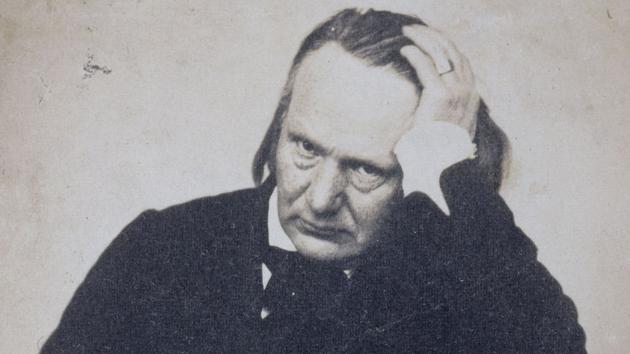This article is taken from the
Figaro Hors-Série "Baudelaire, le spleen de la modernité"
, find all the articles on the most classic of modern poets, his life as a tormented dandy, his aesthetics, his work, from
Fleurs du Mal
to
Artificial paradises
.
Étienne Carjat, 1861
Le Figaro
On June 18, 2014, a copy of the first edition of
Fleurs du mal
went on sale at Christie's in New York.
Within the work was inserted a letter from Baudelaire to Auguste Poulet-Malassis, the poet's publisher, in which appeared a curious unpublished postscript which began as follows:
“V.
Hugo keeps sending me stupid letters. ”
Baudelaire then wrote a few words, then crossed them out before continuing:
"I am
erasing
the too coarse word I have just written to simply say that
I have had enough."
This inspires me so much trouble, that I am willing to write an essay to prove that, by a fatal law,
genius
is always
beast.
The letter had been published in 1887 by Eugène Crépet, then reproduced in
This article is for subscribers only.
You have 91% left to discover.
To cultivate your freedom is to cultivate your curiosity.
Continue reading your article for € 1 the first month
I ENJOY IT
Already subscribed?
Log in



/cloudfront-eu-central-1.images.arcpublishing.com/prisa/ZCAHDMB6WVDBPDWJ4ZUKGUMH4Y.jpg)











